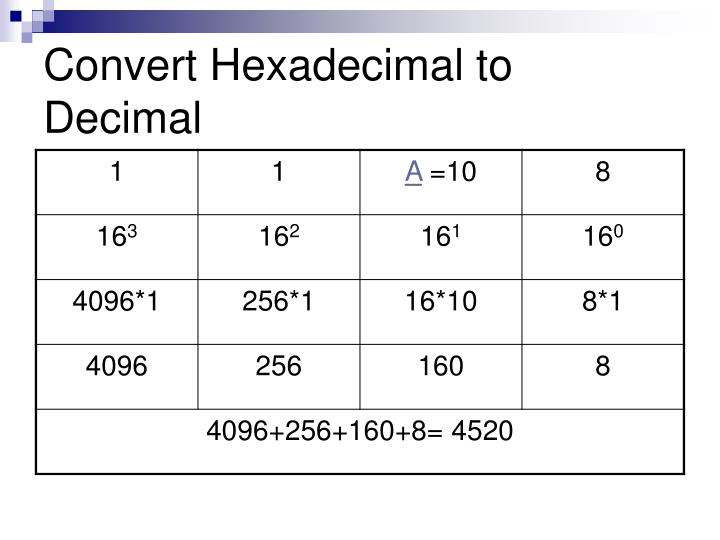

- #Convert mac address string to byte array java for mac#
- #Convert mac address string to byte array java code#
The following are examples of input formats that are accepted: '08:00:2b:01:02:03:04:05' Leading and trailing whitespace is ignored. The number of hex digits must be either 16 (8 bytes) or 12 (6 bytes). You have to feed in the MAC address separately after the initial code.
#Convert mac address string to byte array java code#
It's just code to use a byte array to convert a 64-bit integer (which could be any 64-bit integer) to a string. Generally speaking, any input which is comprised of pairs of hex digits (on byte boundaries), optionally separated consistently by one of ':', '-' or '.', is accepted. But if I understand your example right, that initial code I doesn't have anything specifically to do with the MAC address. The function macaddr8_set7bit is provided to make this change. Note that IPv6 uses a modified EUI-64 format where the 7th bit should be set to one after the conversion from EUI-48. MAC addresses given in 6 byte format will be stored in 8 byte length format with the 4th and 5th bytes set to FF and FE, respectively. This type can accept both 6 and 8 byte length MAC addresses and stores them in 8 byte length format. The macaddr8 type stores MAC addresses in EUI-64 format, known for example from Ethernet card hardware addresses (although MAC addresses are used for other purposes as well). The remaining five input formats are not part of any standard. PostgreSQL makes no provisions for bit reversal all accepted formats use the canonical LSB order. This convention is widely ignored nowadays, and it is relevant only for obsolete network protocols (such as Token Ring).
#Convert mac address string to byte array java for mac#
IEEE Standard 802-2001 specifies the second form shown (with hyphens) as the canonical form for MAC addresses, and specifies the first form (with colons) as used with bit-reversed, MSB-first notation, so that 08-00-2b-01-02-03 = 10:00:D4:80:40:C0. Output is always in the first of the forms shown. Upper and lower case is accepted for the digits a through f. These examples all specify the same address. Input is accepted in the following formats: '08:00:2b:01:02:03' There are two other variants of getBytes () method in order to provide an encoding for String. getBytes () - Encodes this String into a sequence of bytes using the platforms default charset, storing the result into a new byte array. The macaddr type stores MAC addresses, known for example from Ethernet card hardware addresses (although MAC addresses are used for other purposes as well). String class has getBytes () method which can be used to convert String to byte array in Java.


 0 kommentar(er)
0 kommentar(er)
